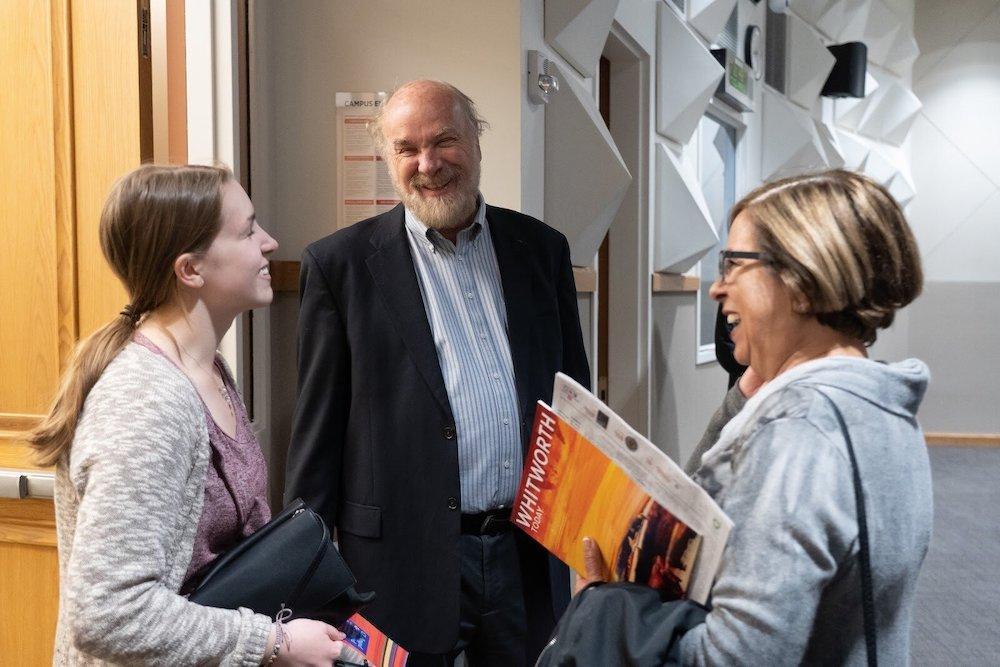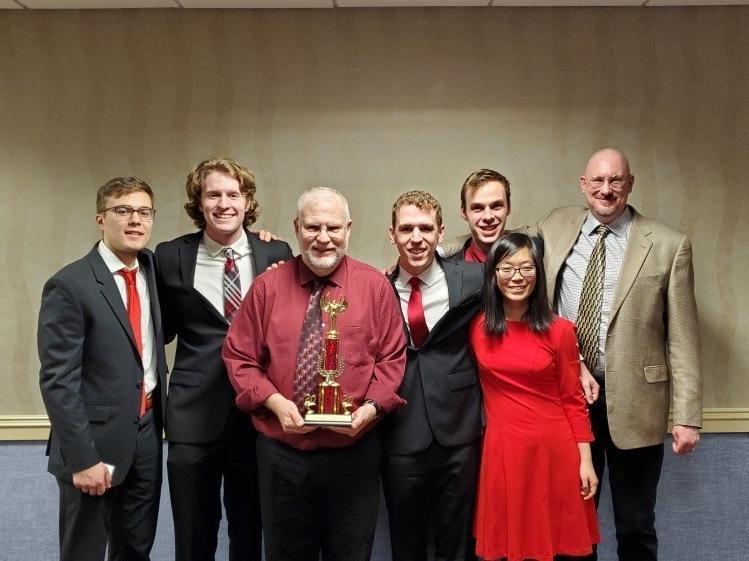General education curriculums, or gen ed, are a staple of college education. Students at a vast majority of colleges across the country are required to complete certain general education courses, though the requirements differ between schools.
Recently, Whitworth has undergone the process of reorganizing its general education curriculum. Come Fall of 2020, Whitworth will launch the current gen ed’s replacement, the Shared Curriculum.
Erica Salkin, associate professor of communication studies, acted as a member of two of the shared curriculum task forces, in addition to co-chairing a third task force.
According to Salkin, the process of discussing and revising the general education curriculum started with asking a question.
“It started four years ago with us taking a step back and asking ‘Why do we do gen eds here at Whitworth?’ General education curriculum has long been considered a fundamental part of a liberal arts education, but we asked why we do it the way we do it here,” Salkin said.
Mark Killian, associate professor of sociology, acts as the director of general education, and was heavily involved in the formation and implementation of the shared curriculum.
“The last gen ed revision happened about 25 years ago. Recently, there was a multi-year process to develop, through very healthy civil discourse, a statement, and that’s our general education rationale statement. This was a vision statement about what we would like our general education curriculum to do,” Killian said.
According to Whitworth’s Gen Ed Rationale, the primary intended outcome of the general education curriculum at Whitworth is to “encourage students to explore, reflect on, and apply knowledge” within their courses.
Whitworth faculty and administration next faced the question of whether or not the general education curriculum aligns with the Gen Ed Rationale statement.
“There was a task force that reviewed our general education curriculum. And that task force did focus groups with faculty, students, and a number of different constituents, and ultimately decided that, in many ways, our current general education curriculum does not do what the rationale said it was supposed to do.” Killian stated.
Many colleges, including Whitworth, have a distributed general education curriculum. In this curriculum, students are required to take general education courses within specific subject areas, such as Math or English; however, these courses are often disconnected from each other.
“Right now, we have what’s called a distributed general education curriculum.” explained Killian, “You take a Humanities course over here. You take a U.S. diversity course over there, but there’s no through line, there’s no common thread bringing those courses together. So what we did as a faculty is we looked at how we can create more through lines, more threads. How can we really integrate these different courses together in a way that fits our general education rationale, but also helps students understand the purpose of a liberal arts education.”
Salkin also referenced the seemingly disconnected nature of current general education courses at Whitworth.
“A common complaint from students about general education is, ‘we don’t see why we need to take these seemingly unrelated courses.’ What we’re hoping with the new shared curriculum is the connections become clearer and students see how these work together to better educate you across the range of disciplinary knowledge. It prepares you, not just for careers, but to be a citizen, a community member, a family member, a member of a faith community,” Salkin said.
The Shared Curriculum, according to Salkin, “shifts our thinking about general education here at Whitworth from a group of distinct categories of courses and into these four large interdisciplinary areas of inquiry.”
According to the Shared Curriculum Overview, these areas of inquiry are belief, culture, expression, and science. In addition, there will be a fifth set of classes, called Praxis. These classes will “promote habits of health and wellness.”
Courses in these inquiry groups will have “different subject matters, but the same outcomes,” according to Killian.
In regards to the current stage of the project, Killian stated, “We’re in the process where faculty are transitioning their gen ed classes into the shared curriculum, ensuring that all of the shared learning outcomes will be met. There might be some courses that have to change a lot, but there are some others that do this already.”
“In many ways,” Killian states, “it’s not that different from what we currently have, but now there’s these threads, this through line, and these courses are going to be tied together.”
Though the Shared Curriculum is being launched next Fall, current Whitworth students will not be severely impacted by the change. Salkin stated, “For current Whitworth students, you have the right to finish the curriculum that you came into. You don’t have to change, but you can, if you want to. These changes are going to benefit everybody, regardless.”
For more information about the Shared Curriculum, contact Mark Killian at mkillian@whitworth.edu. Also students can talk to their academic advisors.












 Spokane?
Spokane?